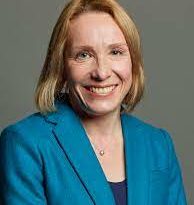Robert Key – 1983 Maiden Speech in the House of Commons
The maiden speech made by Robert Key, the then Conservative MP for Salisbury, in the House of Commons on 30 June 1983.
In the year 1275, Salisbury first sent Members to Parliament. Thus, 708 years on, it is with some humility that I address the House for the first time.
It is not irrelevant that in this debate on high technology wideband cablecasting we should glance back in time for a moment. Those first Members of Parliament were, like us, concerned with communication between people. As a former schoolmaster, I might even be allowed to indulge my belief that the written word has lost some of its beauty and authority in the age of electronic communication.
During the recent general election, I dare say that many prospective hon. Members, like me, were occasionally assassinated in the press. In just a couple of sentences of election fever my personal history was rewritten on the back page of The Times. My origins were removed from Wiltshire to the home counties, by some journalistic miracle my profession changed from teacher to chartered accountant, and I was remarried to someone called Fiona. It was perhaps not surprising that the same newspaper claimed in its first list of new Members of Parliament that I had “no biography available”. I know not why, but, as I learnt subsequently, the South China Morning Post carried a more accurate account of the goings on in Salisbury than The Times.
So it is with relief that I can now rely on the unerring accuracy of Hansard and my local newspapers to report my efforts on behalf of the electors of Salisbury. I thank them for their confidence, and, even though I received an absolute majority of the votes cast, I consider it my duty and a privilege to represent also the interests of the minorities who did not vote for me, or who chose, sadly, not to vote for anyone.
To my 1,100 or so active workers who on polling day turned the wheels of democracy on my behalf, I express my heartfelt thanks. I salute my immediate predecessor, Sir Michael Hamilton. A man of the greatest courtesy and sensibility, he will be hard to follow and he is much missed by his many friends here and in Salisbury.
The people of Salisbury have always been stouthearted and forward-looking. They have always understood the meaning of good communications, and taken advantage of it. The Romans focused a network of roads on Old Sarum, but the Norman bishops moved away and founded the city of New Sarum on the valley trade routes. Grateful, of course, for its episcopal innovators, Salisbury also has a long tradition of disagreement with its bishops, usually over local taxation, but more recently over the defence of the realm. But I would not wish on our current gentle pastor the fate of his predecessor, who in 1450 was pursued by a mob and murdered on Salisbury plain. Nor would I wish on the gentle vet who is our mayor the fate of his predecessor, John Halle, who was committed to the Tower of London for using violent language.
That we know such facts is a tribute to the accuracy of language and records. In Salisbury, education and the enriching of our cultural life are taken very seriously indeed. Our citizens may be employed in agriculture, engineering—much of it based on high technology—and the commercial and professional services on which they depend, or in tourism, transport, the armed services, defence establishments and our over-criticised, often under-valued Civil Service, but what they all have in common is the will and the skill to seize on new technology and use it sensibly.
Salisbury is not particularly well served by local radio or television—it is peripheral to many stations. There must be many towns and cities in a similar position—dwarfed numerically by larger neighbours, but founts of unique benefit to the life of wider regions.
In supporting the introduction of cable systems, I should like to draw to the attention of the House paragraph 58 of the White Paper, which deals with franchise areas. The Government must be held to their proposal to give the cable authority the duty to take into account natural community groupings. Cable operators should do more than cream profits from limited services in densely populated areas. They should assume wider responsibilities in developing all the opportunities offered by inter-active systems, both geographically and in the variety of services offered. Local business and industry should benefit, but so should our schools, colleges, theatres, concert halls and sports facilities and last, but by no means least, our families in their homes.
In a recent survey, 71 per cent. of people said that they wanted more choice on television and 59 per cent. wanted channels for local news and local features. The demand is there and should be met. The White Paper strikes the right balance between over-regulation, which would kill the project, and a free-for-all, which would damage the high quality of much of the existing BBC and ITV output.
British television, both technically and artistically, enjoys an unrivalled international reputation for creativity and we are poised to capture a world lead in a new generation of direct broadcasting by satellite and interactive wideband cable systems. We must not miss our chance. Whatever else my constituents may or may not wish me to say on their behalf, they did not send me to this place to impede progress. Nor will I.


